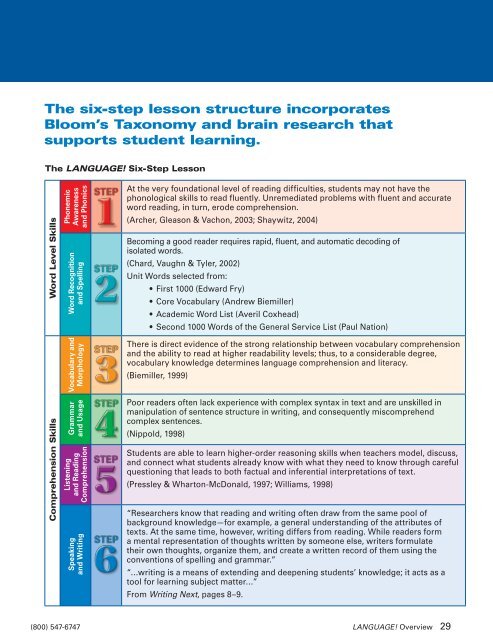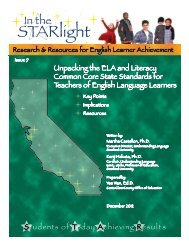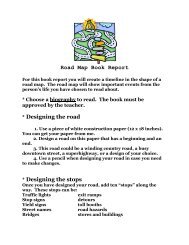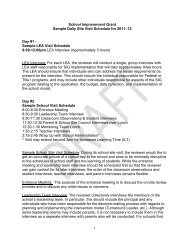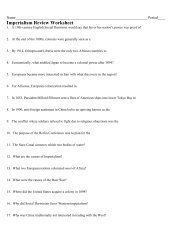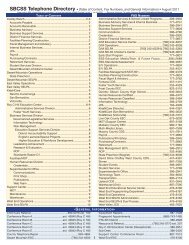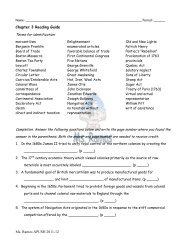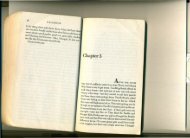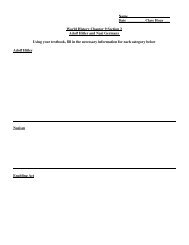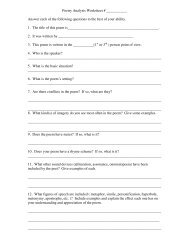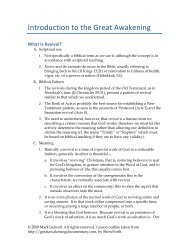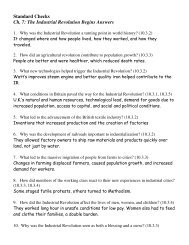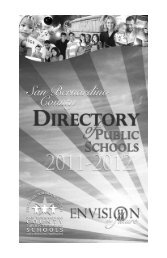4th Edition LANGUAGE! Overview
4th Edition LANGUAGE! Overview
4th Edition LANGUAGE! Overview
Create successful ePaper yourself
Turn your PDF publications into a flip-book with our unique Google optimized e-Paper software.
The six-step lesson structure incorporatesBloom’s Taxonomy and brain research thatsupports student learning.The <strong>LANGUAGE</strong>! Six-Step LessonWord Level SkillsComprehension SkillsPhonemicAwarenessand PhonicsWord Recognitionand SpellingVocabulary andMorphologyGrammarand UsageListeningand ReadingComprehensionSpeakingand WritingAt the very foundational level of reading difficulties, students may not have thephonological skills to read fluently. Unremediated problems with fluent and accurateword reading, in turn, erode comprehension.(Archer, Gleason & Vachon, 2003; Shaywitz, 2004)Becoming a good reader requires rapid, fluent, and automatic decoding ofisolated words.(Chard, Vaughn & Tyler, 2002)Unit Words selected from:• First 1000 (Edward Fry)• Core Vocabulary (Andrew Biemiller)• Academic Word List (Averil Coxhead)• Second 1000 Words of the General Service List (Paul Nation)There is direct evidence of the strong relationship between vocabulary comprehensionand the ability to read at higher readability levels; thus, to a considerable degree,vocabulary knowledge determines language comprehension and literacy.(Biemiller, 1999)Poor readers often lack experience with complex syntax in text and are unskilled inmanipulation of sentence structure in writing, and consequently miscomprehendcomplex sentences.(Nippold, 1998)Students are able to learn higher-order reasoning skills when teachers model, discuss,and connect what students already know with what they need to know through carefulquestioning that leads to both factual and inferential interpretations of text.(Pressley & Wharton-McDonald, 1997; Williams, 1998)“Researchers know that reading and writing often draw from the same pool ofbackground knowledge—for example, a general understanding of the attributes oftexts. At the same time, however, writing differs from reading. While readers forma mental representation of thoughts written by someone else, writers formulatetheir own thoughts, organize them, and create a written record of them using theconventions of spelling and grammar.”“…writing is a means of extending and deepening students’ knowledge; it acts as atool for learning subject matter…”From Writing Next, pages 8–9.(800) 547-6747 <strong>LANGUAGE</strong>! <strong>Overview</strong> 29


